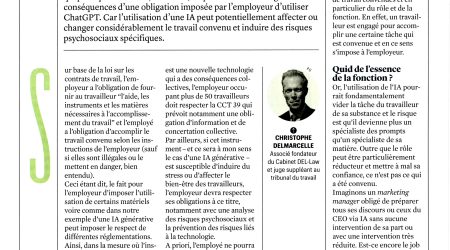When will we see a realistic discourse of "tears, sweat and blood"?
Posted the 3 November 2020If in the first six months of the year, the number of announcements of collective layoffs remains stable compared to 2019 (36 in 2020 vs 43 in 2019), the number of workers affected from January to June has doubled (4,483 in 2020 compared to 2,681 in 2019). This figure nearly matches the total number of workers affected in all of 2019 (5,087)… These announcements included, notably, Hotel Métropole, Brussels Airlines, D'Ieteren, Lagardère, Brantano, Samsonite, and the Hoorens printing company.
The months of May and June are particularly "devastating" for employment, with 1,304 and 2,099 workers affected by collective layoffs, compared to 186 and 133 in May and June 2019...
Sector breakdowns show that the hospitality sector (741), traditionally spared, has been heavily impacted, as well as transport (1,030) and petrochemicals (950).
That said, the figures from the first half of 2010 (10,000), 2012 (5,000), or 2014 (7,200) have not been surpassed.
However, since then, announcements of "Renault procedures" have followed, notably from Ryan Air, Sodexho, Lunch Garden, Coca-Cola, and MediaMarkt. It is clear that the annual totals from these dark years (13,000, 16,700, and 10,600) will be exceeded.
Layoffs in "waves"
Moreover, the phenomenon hides ongoing restructurings not involving a collective dismissal procedure — what is legally termed a "wave" layoff — because the Renault procedure only applies when the number of workers laid off exceeds the set threshold (10 for companies with fewer than 100 workers, 10% for companies with 100 to 300 workers, or 30 for companies with more than 300 workers) over a period of 60 calendar days. While this staggered approach is legal, it has sparked outrage among trade unions, as shown by the Getronics case.
It also hides, above all, job losses due to bankruptcies, which in "low" years represent around 21,000 workers and in "high" years, up to 30,000 (2013 and 2014), with 25,000 job losses in 2019 alone.
While official collective layoffs will likely affect at least 15,000 workers, triple the number in 2019, the total number of job losses is, in reality, much higher.
To recall, the IRES predicted in July a net loss of 106,000 jobs (133,000 additional unemployed); figures that may turn out to be optimistic, especially if there is another lockdown.
Furthermore, social despair is also evident from the extremely short procedural durations, with a median of 46 days to complete a "Renault procedure", down from 61 in 2019 and 80 in 2018. A logical effect, as trade unions know full well there is little to be done, and the most important thing is to negotiate the social aspect of departures.
Uncertain funding
At this stage, instead of delivering a realistic discourse of "tears, sweat, and blood" (Winston Churchill, 13 May 1940) in the battle against the economic effects of Covid, our politicians do not seem to have grasped the full extent of an unprecedented crisis.
True, the government agreement includes many measures, including a "recovery" plan of 4.7 billion and various measures to improve competitiveness. However, the financing of these measures seems quite uncertain in a context of historic deficits with no budgetary margins, and especially across the country – particularly in Brussels – many measures continue to be taken under the guise of Covid, which negatively impact economic activity.
I fear that we continue to spend money and think as if in "peacetime", playing small partisan political games while the country sinks further.
Christophe Delmarcelle
Founding Partner, DEL-Law
Alternate Judge at the Labour Court
Related articles

Is an employer allowed to mandate the use of artificial intelligence tools by employees ? (Trends, 17-07-2025)

Caution if a former colleague opposed to your employer asks you to testify in their favor
